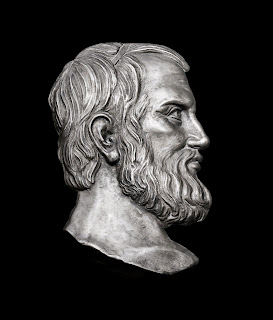Discover the art of script writing, get book writing and promotion tips, and get recommendations for captivating books on Pen and Plot. Join our community of passionate writers and readers today!
Sunday, 3 March 2024
The Art of Storytelling: How to Utilise Wattpad's Features to Publish Your Works and Build a Thriving Reader Community
Wednesday, 28 February 2024
Sophocles: Analysing the Themes and Characters in Antigone
Sunday, 25 February 2024
The Mythical King of Athens: Unveiling the Legacy of Theseus in Greek Theatre and History
In Greek mythology, Theseus was a legendary hero and the mythical king of Athens. He is known for his bravery, intelligence, and remarkable feats; He was considered the biggest hero only after Heracles, which have left a lasting impact on Greek history, art, and culture. Theseus is celebrated as a symbol of heroism and as an embodiment of the ideals and values of ancient Athens.
The Legend of Theseus in Greek Mythology
The legend of Theseus is one of the best-known stories in Greek mythology. According to the myth, Theseus was the son of Aegeus, the king of Athens. His journey began when he set out to Athens from his birthplace, Troezen, to claim his rightful place as the heir to the throne. On his way, he encountered numerous challenges, including the famous battle with the minotaur in the labyrinth in Crete. Theseus successfully defeated the Minotaur and returned to Athens as a hero.
The Appearance of Theseus in Oedipus at Colonus
One significant appearance of Theseus in Greek theatre is in the play ''Oedipus at Colonus'' by Sophocles. In this play, Theseus plays a crucial role in helping Oedipus, the tragic hero, find redemption and peace. Theseus is depicted as a wise and compassionate king who offers Oedipus shelter and protection. Through his interactions with Oedipus, Theseus embodies the qualities of empathy and benevolence, highlighting the importance of compassion and forgiveness in Greek society.
The Marathon: A Historic Connection to Theseus
According to the ancient writer Plutarch, there is a fascinating account of the ghost of Theseus appearing to come out of the ground, inspiring the Athenians, and leading them against the Persians. This legendary event is steeped in the rich mythology and history of ancient Greece, reflecting the enduring legacy of Theseus as a hero and leader.
The Legacy of Theseus in Art
Beyond the Greek theatre and mythology, the legacy of Theseus extends into various realms of history and art. His story has been depicted in sculptures, pottery, and paintings throughout the centuries. Theseus became an iconic figure in Greek art, representing the ideals of heroism and virtue.
Wednesday, 21 February 2024
The Tragic Tale of Electra: A Deep Dive into Sophocles' Masterpiece
Sunday, 18 February 2024
Ancient Greek Comedy and Satire: Aristophanes
Menander: The Life and Works of the Ancient Greek Comic Poet
Menander was born around 342 BC in Athens and died in 290 BC. Hailing from a family of prominent intellectuals, his father was Diopeithes, a...

-
The Enuma Elis is a mesmerising epic poem from ancient Mesopotamia that has captivated scholars and enthusiasts for centuries. As one of the...
-
The chorus is an integral part of ancient Greek tragedy, playing a vital role in enhancing the dramatic effect and conveying the central the...
-
Introduction Oedipus Rex, written by the great playwright Sophocles , is an iconic tragedy that has captivated audiences for centuries. This...









